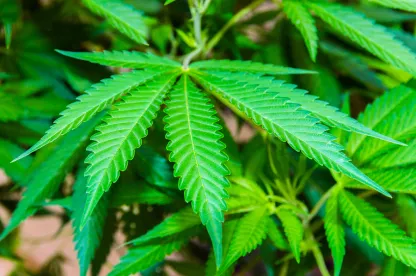On December 20, 2018, President Trump signed into law the Agricultural Improvement Act of 2018 (commonly known as the Farm Bill). While the bill is all-encompassing, touching on many aspects of agricultural and nutritional policy for the next five years, it will fundamentally transform the business of hemp by making major changes to the laws surrounding the cultivation, processing, and sale of hemp and its derivatives. The changes brought about by the Farm Bill will create opportunities for development of a hemp economy across all 50 states, provide greater certainty for hemp businesses attempting to secure banking, insurance, and other fundamental business services, and improve consumer access to hemp and its derivatives.
Hemp is Descheduled under the Controlled Substances Act
Hemp, a subtype of Cannabis, Cannabis sativa L., has been illegal since the 1937 passage of the Marijuana Tax Act. Previously, hemp had long been used for textiles, edible seeds, mulch, and more (and has been consistently used outside the United States for these purposes). Hemp has a high concentration of the cannabinoid Cannabidiol (CBD), a non-psychoactive compound popular in the alternative health and wellness community for pain reduction and mood enhancement. Since the 1970 Controlled Substances Act, hemp has been classified as a Schedule I substance - along with its psychoactive cousin marijuana - because of the visual similarity between the two plants and a general misunderstanding of its uses.
The move toward ending hemp prohibition and the reemergence of a hemp economy began with the 2014 Farm Bill, which provided states with opportunities to create pilot programs for hemp research. The 2018 Farm Bill expands on the 2014 act. The 2018 Bill removes “hemp” from the definition of “Marihuana” in the Controlled Substances Act, decriminalizes the plant and its components, and as a result, transfers oversight of the cultivation and sale of the crop from the Drug Enforcement Administration to the Department of Agriculture.
Hemp Moves Further Toward Industrial Crop Status
Descheduling hemp, however, does not mean that its cultivation, processing, and sale are free from restriction. Hemp remains subject to regulation under the Farm Bill, which provides for the continuation and expansion of state-sponsored hemp pilot programs, and offers federal licensing for individuals located in states where no pilot program exists. For consumers, investors, and processors, due diligence remains a top priority when sourcing hemp and hemp derivatives.
The net result of the Farm Bill’s passage is that farmers and entrepreneurs gain several significant benefits, in addition to ending the uncertainty of criminal exposure for growing, processing or selling hemp:
-
Federal licensing for farmers wishing to grow hemp in states that don’t have a pilot program
-
Clarification that interstate commerce in hemp is permitted
-
Placing oversight of hemp with the USDA
-
Including hemp in the Federal Crop Insurance Act.
These provisions will go a long way toward helping the industry by clarifying existing gray areas of law, creating certainty around transport and interstate sale, and normalizing hemp as an industrial crop.
The Legality of CBD
In the last few years, CBD has exploded onto the health and wellness scene, while occupying a gray regulatory space in which its processing and sale, particularly across state lines, has been complicated by overlapping and unclear laws. The Farm Bill defines hemp as “the plant Cannabis sativa L. and any part of that plant, including the seeds thereof and all derivatives, extracts, cannabinoids, isomers, acids, salts, and salts of isomers, whether growing or not, with a delta-9 tetrahydrocannabinol concentration of not more than 0.3 percent on a dry weight basis.” The inclusion of extracts and cannabinoids in the definition of hemp makes it clear that CBD will be subject to all of the regulation and rights as the crop under this Farm Bill.
Remaining Limits on Hemp
It should be noted that while the 2018 Farm Bill provides much-needed regulatory certainty in the space, it doesn’t legalize all hemp, or all CBD.
First, the hemp must be grown by a licensed cultivator. Entrepreneurs, distributors, and consumers need to understand the source of the products they buy, and their supplier’s compliance with licensing and other regulations. As with any trending product, there are unscrupulous individuals operating in the space, so everyone should have the guidance required to successfully navigate this area.
Second, significant regulatory issues remain; the Farm Bill makes clear that hemp remains subject to the Federal Food, Drug, and Cosmetics Act, among other federal statutes.
Given the cannabis industry’s rapid evolution and continual changes, it is critical to engage legal counsel with experience in forming, financing, protecting the IP of, and investing in companies operating in and around this industry. Experienced counsel can offer guidance and direction in developing a strategy to address any risk associated with Cannabis, even in the post-prohibition era for hemp production.



 />i
/>i
